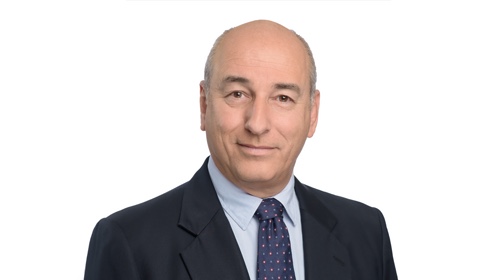Israel Patent Office – 2016 Annual Report

The recently published 2016 Annual Report by the Israeli Patent Office (ILPO) summarises its activities and contributions to the IP environment in Israel. An interesting part of the report is dedicated to actions which aim to improve ILPO efficiency. Such actions include, among others, the transition to online services and investment in human resources. According to the report, the measures implemented brought about an amelioration of efficiency.
One of the most dramatic changes was the ILPO’s transition to a paperless environment and online accessibility in all its departments. This process, which entailed amendments to the existing legislation in the Knesset – Israel’s parliament – commenced in June 2015 and was completed in December 2016. Today all the services offered by the ILPO are available online, including the filing of applications for registration of trademarks, patents and designs as well as correspondence with ILPO examiners during prosecution and submission of pleadings and other documents in the framework of proceedings before the registrar. The online system also enables applicants to file international patent applications (under the Patent Cooperation Treaty (PCT)). Furthermore, apart from exceptional cases it is now mandatory under the amended regulations to file all documents online.
Another development which took place in March 2017 – similar to patent application file wrappers which have been available online for several years – is that documents in the file wrappers of trademark applications are available for inspection online. However, this is not yet available for industrial designs.
These developments, as well as other measures taken by the ILPO, have made its workflow more efficient.
This is reflected, for example, in the waiting period for first examination, which has become shorter for trademarks (the waiting period was shortened by 15 days, a 3.6% reduction from 2015) and is now on average 14.3 months, as well as for patents (8% reduction from 2015) which is now on average 28.5 months.
Interestingly, the Annual Report indicates a decline in the number of both patent and trademark applications filed in Israel in 2016. An 11% decline is reported in the number of trademark applications filed (a 16% decline in the number of classes) and a 7% decline in the number of patent applications filed.
At the same time, upon analysis of the data relating to 2015, the 2016 Annual Report indicates that Israel remained at number 18 among the designated jurisdictions for international trademark applications under the Madrid Protocol. Similarly, steady growth remained in the filing of PCT applications by Israeli inventors and an increase is shown in the number of international patent applications filed by Israeli inventors under the PCT (in 2015 Israel was ranked number 13 in the PCT).
In the trademark department, though a decline was witnessed in the number of applications filed, the number of trademarks registered at large remained the same. Class 9 for scientific and electronic apparatus and instruments and goods connected to computers is the leading classification in the last decade, followed by Class 35 for commercial and advertising services and Class 5 for pharmaceutical preparations. The leading companies in filing and registering trademark applications in 2016 were:
- Apple Inc, with a total of 54 applications filed and 61 trademarks registered;
- Gilead Sciences Ireland UC, with a total of 43 applications filed and 45 trademarks registered;
- Abercrombie & Fitch Europe Sagl, with 46 applications filed and 33 trademarks registered; and
- Novartis AG with 60 trademarks registered.
Of note is a 9% increase in the number of allowed patent applications. This increase is in part attributed to the emphasis the ILPO places on completing examinations of patent applications filed over five years ago. The waiting period for examinations of design patents was also reduced and is now on average three-and-ahalf months, though an increase of 21% in the applications filed was recorded in comparison with 2015.
The Annual Report further includes financial data on the ILPO’s activity showing a positive balance for 2016 in the sum of IS43.5 million, which was transferred to the state treasury. The majority of revenue was generated from trademark and patent fees and the ILPO’s activity in connection with prosecution under the PCT.
The Annual Report also details the following actions taken by the ILPO in order to improve the regulatory aspect of the ILPO’s work:
- re-examining existing registrar’s circulars, drafting new circulars and cancelling circulars that have become obsolete;
- starting the RIA (regulation impact assessment) process in regulating the profession of patent attorneys (licensing exams and discipline); and
- in 2016 the ILPO was also involved in conducting an empirical study of patent oppositions in order to examine the extent to which the proceeding is being used, its duration and other issues that may indicate lack of efficiency in the process (the results of the study were published in 2016).
In the framework of this activity, a call for action was published in which the public was requested to submit comments and observations on several topics. Today, discussions are being held in order to determine the degree to which amendments to legislation are required to improve the existing patent opposition process.
In addition to actions that commenced in 2016, discussions on the Designs Bill, which passed its first reading in the Knesset in 2015, continue and are expected to conclude in 2017 (for further information see a newsletter published in this regard by the Reinhold Cohn Group and Gilat, Bareket & Co).
In terms of judicial proceedings, 49 patent oppositions were filed (11 more than 2015) and 101 trademark oppositions (20 more than 2015). At the end of 2016 only 35 patent oppositions and 57 trademark oppositions were pending before the ILPO. The 2016 Annual Report also indicates that in the patents field a total of 14 appeals were filed to the district court from decisions of the ILPO (eight appeals in the trademark field and six in the patent field – three on decisions in patent oppositions and three on decisions regarding requests for PTEs).
The 2016 Annual Report has also included data on occupation diversity at the ILPO – of the approximately 200 employees, 59% are women and 9% belong to ethnic minorities. The ILPO’s emphasis on cultivating its human resources has also brought down the average age of employees – 38% of employees are in their 30s, and 30% are in their 40s.
This article first appeared on WTR Daily, part of World Trademark Review, in June 2017. For further information, please go to www.worldtrademarkreview.com.
This article is provided for general information only. It is not intended as legal advice or opinion and cannot be relied upon as such. Advice on specific matters may be provided by our group’s attorneys.

